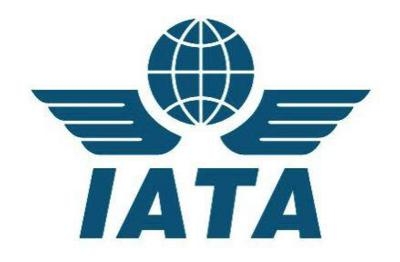Thu, Sep 22, 2016
Calls On Governments To Take Steps To Ensure Service Continuity
The International Air Transport Association (IATA) recently condemned the effects of air traffic controller strikes, which have caused 1 million minutes of delay across Europe this year, and called for governments to take steps to ensure service continuity in the face of industrial action.

“The current frequency of disputes is totally unacceptable. European air travelers have suffered an incredible 1 million minutes of delay and over 3000 cancelled flights as a result of strikes this year. And today is yet another day of French strikes. Every hour wasted impacts European productivity as businesses are disrupted. And it hurts holiday-makers when plans need to be altered. The time has come for European governments to work together to ensure the essential service of air traffic control is able to continue even during strikes,” said IATA’s European Regional Vice President, Rafael Schvartzman.
Controller strikes in France today are expected to lead to the cancellations of at least 15% of flights out of Paris. “Air Traffic Controllers are highly-compensated professionals in a dynamic industry. They should be embracing reforms that are critical to delivering the safety, capacity, cost and environmental improvements European air travelers deserve,” said Schvartzman.
IATA called on governments to ensure service continuity for air traffic management services. “The European economy needs reliable air connectivity. It cannot afford to have its airspace closed like this. A starting point to keeping Europe’s skies open would be for each country to develop its own national airspace strategy, in consultation with airlines, which contains provisions for ensuring service continuity during periods of industrial action or equipment failure,” said Schvartzman.
Alongside improving business continuity, the national airspace strategies should set out how individual European states will modernize and reform their air navigation systems in order to deliver improvements which will benefit passengers and the European economy.
Central to these aims are the goals of the Single European Sky (SES) project, which aims to improve safety and reduce costs, delays and emissions. Due to a lack of political will at state level, the SES has languished without significant progress for many years. A study undertaken by SEO Amsterdam economics published in February 2016 revealed the tremendous economic opportunities available to Europe if its air traffic management system were modernized and the SES goals realized by 2035. These benefits include an extra 1 million jobs and €245 billion in additional GDP annually.
(Source: IATA news release)
More News
Aero Linx: Transport Canada We are a federal institution, leading the Transport Canada portfolio and working with our partners. Transport Canada is responsible for transportation p>[...]
Gross Navigation Error (GNE) A lateral deviation from a cleared track, normally in excess of 25 Nautical Miles (NM). More stringent standards (for example, 10NM in some parts of th>[...]
From AirVenture 2017 (YouTube Edition): Flight-Proven Booster On Display At AirVenture… EAA AirVenture Oshkosh is known primarily as a celebration of experimental and amateu>[...]
Aircraft Parachute System (CAPS) Was Deployed About 293 Ft Above Ground Level, Which Was Too Low To Allow For Full Deployment Of The Parachute System Analysis: The day before the a>[...]
Also: 48th Annual Air Race Classic, Hot Air Balloon Fire, FAA v Banning 100LL, Complete Remote Pilot The news Piper PA-18 Super Cub owners have been waiting for has finally arrived>[...]
 ANN's Daily Aero-Linx (06.29.25)
ANN's Daily Aero-Linx (06.29.25) ANN's Daily Aero-Term (06.29.25): Gross Navigation Error (GNE)
ANN's Daily Aero-Term (06.29.25): Gross Navigation Error (GNE) Classic Aero-TV: Anticipating Futurespace - Blue Origin Visits Airventure 2017
Classic Aero-TV: Anticipating Futurespace - Blue Origin Visits Airventure 2017 NTSB Final Report: Cirrus SR22
NTSB Final Report: Cirrus SR22 Airborne Affordable Flyers 06.26.25: PA18 Upgrades, Delta Force, Rhinebeck
Airborne Affordable Flyers 06.26.25: PA18 Upgrades, Delta Force, Rhinebeck



